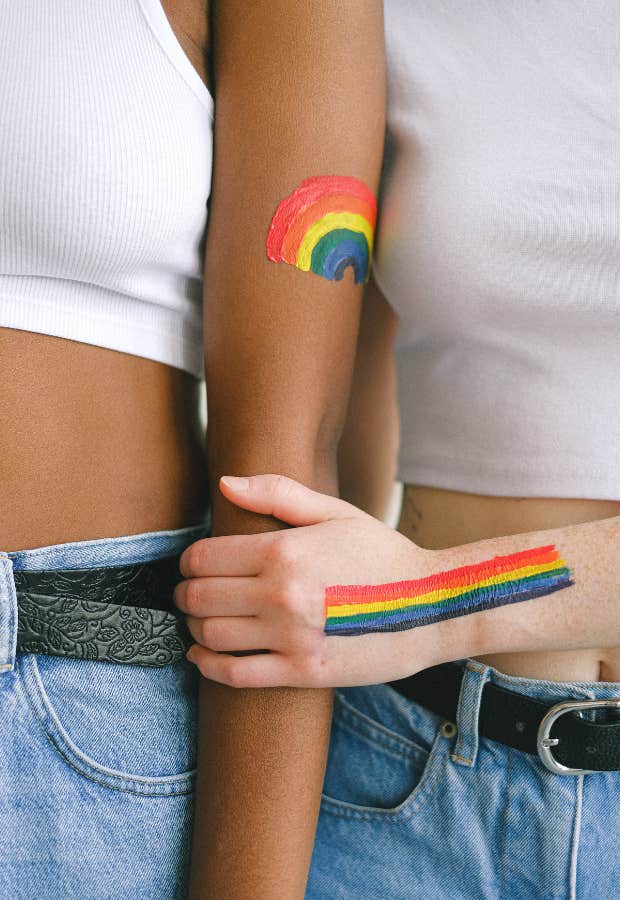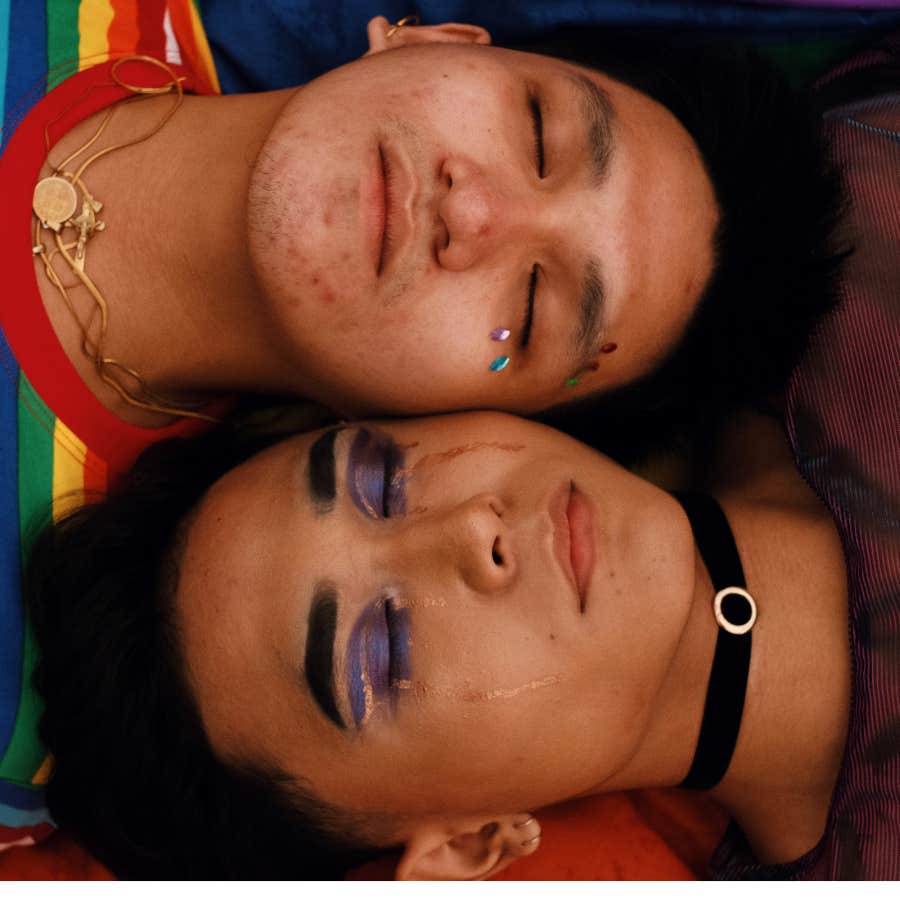Teen Feels Hurt By Liberal Mom's Response To Her Coming Out
While we can’t control other people’s behavior, we can hold them accountable for moments when they cause harm, even if that harm isn’t intentional.
 Wendy Wei / Pexels
Wendy Wei / Pexels Adolescence is a time of inevitable change, as we take one step closer to the adult versions of ourselves, establishing our own identities. We separate from the expectations that our families hold. As we learn who we are, we learn to lean into what resonates for us.
Those are the parts of ourselves we want to share with the people we love, yet we’re not always received the way we expect to be. A 16-year-old girl wrote to the column “Dear Abby,” seeking advice on how to navigate her emotions after coming out.
The teen felt hurt by her liberal mom’s response to her coming out.
“How do I convince my liberal parents that my bisexuality is not a phase?” The girl asked. She explained that she just came out to her parents, yet didn’t receive the reaction she was hoping for. She said, “My mom told me she’d ‘had a gay phase, too.'”
 Photo: Anna Shvets / Pexels
Photo: Anna Shvets / Pexels
“I don’t want conflict, but I’m also pretty hurt,” she explained, ending her letter by wondering how to convince her parents to take her bisexuality seriously.
Dear Abby's advice to the newly out teen didn't focus on her feelings but more on the mom's intentions, folded within her response.
“Your mother was not trying to hurt or diminish what you told her,” the columnist concluded. “In fact, she told you something important about herself — that she, too, has been attracted to both men and women.”
Her assessment reflects a level of empathy for the mom as a parent, yet glosses over the daughter's feeling invalidated by the reaction she got.
From an outside perspective, it seems like the mom supports the teen’s discovery of her queerness, though her expression minimizes bisexuality as something that isn’t fully valid on its own. The implication of “a gay phase” serves to reinforce harmful stereotypes, as though bisexuality is something you opt in and out of depending on who your partner is.
Maybe the mom was trying to connect to her daughter by telling her that she, too, has kissed, or loved, or wanted to love someone other than a straight, cis man.
Maybe the mom once slipped her hand into a woman’s hand when they walked down the street, the spark in the spaces between their fingers igniting. Maybe she kissed a guy at the end of a date once, leaning up against him outside the train station, as snow fell on his eyelashes. Maybe she’s dated someone who didn’t fit into any defined gender identity.
Yet her daughter told her about a part of herself and she responded by implying that bisexuality is impermanent.
Framing bisexuality as "a gay phase," solely serves to reinforce harmful stereotypes, like the idea that we have to choose a side, as though the love and desire we have is only legitimized by who we’re with.
According to a 2022 survey conducted by the Pew Research Center, “17% of adults younger than 30 identify as lesbian, gay or bisexual.” The same survey found that “among adults who are lesbian, gay or bisexual, 62% identify as bisexual, while 38% are gay or lesbian.”
The specters of biphobia and bi-erasure remain real, the two inexorably linked. The idea that bisexuality is a phase is rooted in the idea that it’s not a legitimate orientation. Biphobia is sneaky, manifesting even within the queer community.
In 1991, the Bay Area Bisexual Network published the first issue of a magazine, “Anything That Moves: Beyond The Myths Of Bisexuality.” Its black and white photocopied cover shows the faded image of someone spray painting a wall with hearts, symbols, the words “Fear Kills.” The magazine included a piece of writing that could now be called queer canon — The Bisexual Manifesto.
"Bisexuality is a whole, fluid identity," the Manifesto states. “Do not assume that bisexuality is binary… that we must have ‘two’ sides or that we MUST be involved simultaneously with both genders to be fulfilled human beings. In fact, don't assume that there are only two genders.”
“Do not mistake our fluidity for confusion, irresponsibility, or an inability to commit… Nothing should be assumed about anyone's sexuality — including your own,” it continues.
 Photo: Slaytina / Pexels
Photo: Slaytina / Pexels
When the 16-year-old came out to her mom, she chose to share a sacred part of herself, offering her mom vulnerable knowledge about how she sees herself, who she loves, and what she values.
The mom didn’t offer the reaction that the teen hoped for. While we can’t control other people’s behavior, we can hold them accountable for moments when they cause harm, even if that harm isn’t intentional.
At the end of the response Dear Abby sent the teen, she wrote, “Don’t waste your time trying to ‘convince’ her of anything.” It’s a solid point. The best ways to show up, both for ourselves and those around us, center on practicing compassion and being the fullest version of ourselves.
“Live your life authentically and you will be just fine,” the columnist ended her letter.
There is so much joy to be found when we exist how we want. We can create lives where we embrace ourselves fully, learning the powerful magic of love as an action word, an intention, a truth to hold.
Alexandra Blogier is a writer on YourTango's news and entertainment team. She covers the LGBTQIA+ community, pop culture analysis and all things to do with the entertainment industry.

